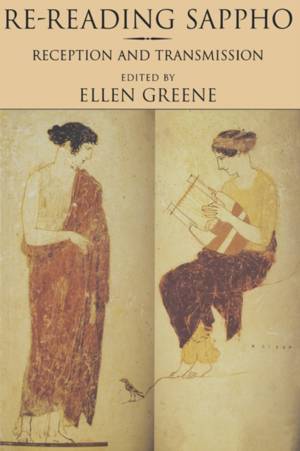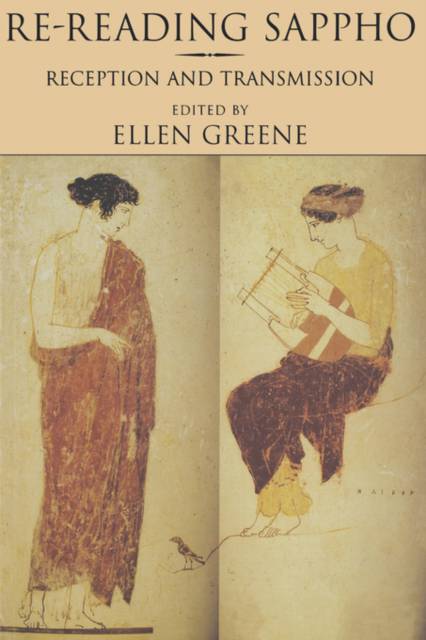
- Afhalen na 1 uur in een winkel met voorraad
- Gratis thuislevering in België vanaf € 30
- Ruim aanbod met 7 miljoen producten
- Afhalen na 1 uur in een winkel met voorraad
- Gratis thuislevering in België vanaf € 30
- Ruim aanbod met 7 miljoen producten
Zoeken
Re-Reading Sappho
Reception and Transmission Volume 3
€ 54,45
+ 108 punten
Omschrijving
Re-Reading Sappho reflects the recent fascination with Sappho's "afterlife." The essays examine the changing interpretations of scholars and writers who have read the fragmentary remains of Sappho's poetry. As the contributors explore the ways that each generation creates its own Sappho, the Sapphic tradition itself becomes an index to changing sensibilities and cultural norms about sexuality, gender roles, and notions of fema le authorship.
A legendary literary figure, Sappho has attracted readers, critics, and biographers ever since she composed poems on the island of Lesbos at the close of the seventh century B.C. Bringing together some of the best recent criticism on the subject, this volume, together with Reading Sappho, represents the first anthology of Sappho scholarship, drawing attention to Sappho's importance as a poet and reflecting the diversity of critical approaches in classical and literary scholarship during the last several decades.
A legendary literary figure, Sappho has attracted readers, critics, and biographers ever since she composed poems on the island of Lesbos at the close of the seventh century B.C. Bringing together some of the best recent criticism on the subject, this volume, together with Reading Sappho, represents the first anthology of Sappho scholarship, drawing attention to Sappho's importance as a poet and reflecting the diversity of critical approaches in classical and literary scholarship during the last several decades.
Specificaties
Betrokkenen
- Uitgeverij:
Inhoud
- Aantal bladzijden:
- 267
- Taal:
- Engels
- Reeks:
- Reeksnummer:
- nr. 3
Eigenschappen
- Productcode (EAN):
- 9780520206038
- Verschijningsdatum:
- 2/08/1999
- Uitvoering:
- Paperback
- Formaat:
- Trade paperback (VS)
- Afmetingen:
- 152 mm x 227 mm
- Gewicht:
- 412 g

Alleen bij Standaard Boekhandel
+ 108 punten op je klantenkaart van Standaard Boekhandel
Beoordelingen
We publiceren alleen reviews die voldoen aan de voorwaarden voor reviews. Bekijk onze voorwaarden voor reviews.







